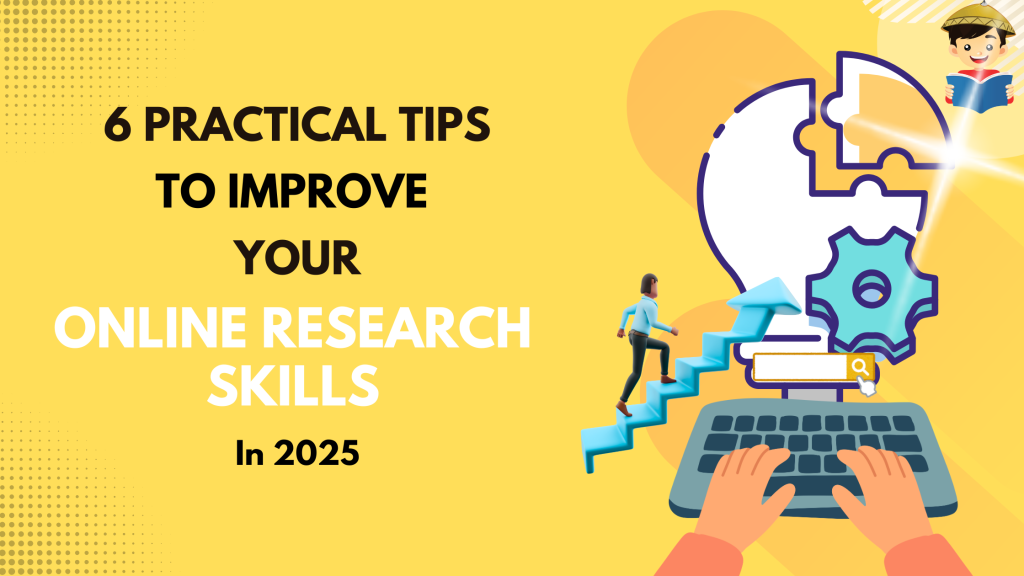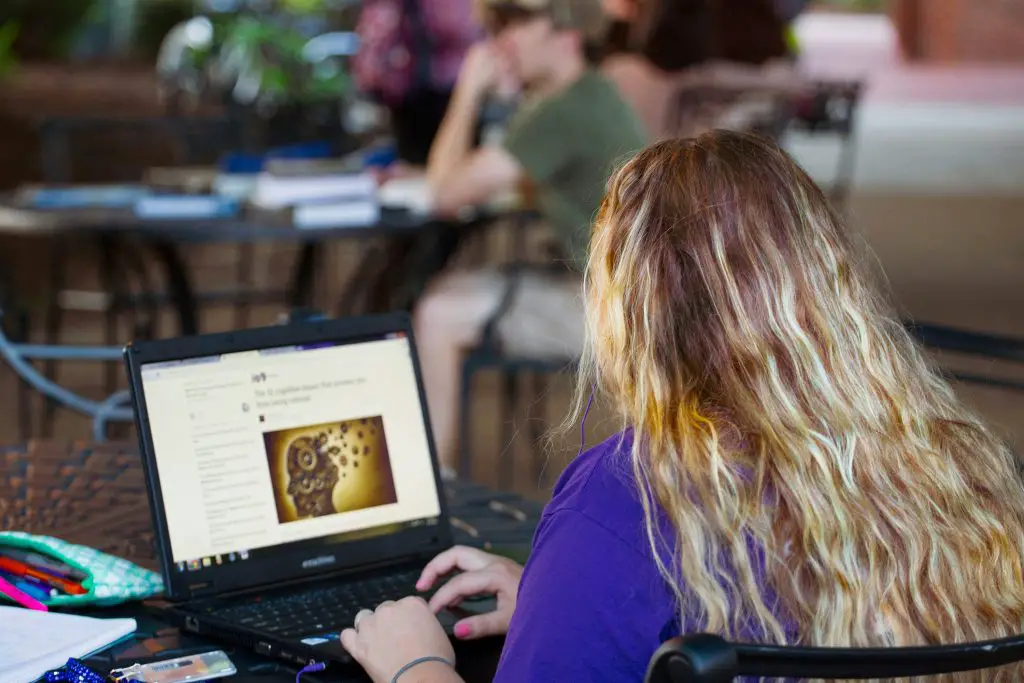6 Practical Tips to Improve Your Online Research Skills in 2025

It is even more important to know how to research. Since the internet is full of useful and erroneous information, one cannot just put any question to Google and expect an answer.
By learning to research on the Internet, you will never have to spend time again completing a paper, preparing a project, or fact-checking your work, as it will be fast, and this will improve the quality of your work.
This article will help you transform your online research skills with six practical tips that will turn you into a smarter and more efficient online researcher. So, let us dive into it!
Table of Contents

1. Master Advanced Search Techniques
It happens to everyone of us, who mostly get confused by too much information that appears as a result of an endless search. Luckily, you can make your searches more targeted and intensive with high-level search techniques.
Some of the practical tricks are:
- To search by an actual phrase, use quotation marks
- Example: “climate change effects on agriculture”
- Clean up the profile by using a minus sign (-) to disregard words one does not want.
- Example: climate change agriculture -activism
- Site-specific searches use the term site: and precede with a period followed by .edu or .gov to get results from educational or government sites.
- Example: “renewable energy policies” site:.gov
🔎 Quick Reference for Search Symbols:
” “ → Exact phrase
– → Exclude words
site: → Search within a domain
filetype: → Search specific file types (e.g., filetype: pdf)
By applying these methods, you will no longer encounter irrelevant results because you will be able to reach the most trusted sources more quickly.
2. Evaluate Sources for Credibility
Not everything that is posted on the Internet is true. One of the most valuable skills that can be acquired is to know how to discriminate between reliable and unreliable resources.
Ask yourself these questions:
- Who is the author? Are they qualified or experienced enough?
- What’s the website? Most likely, a .gov, .edu, or adequately developed news website is more credible than some random blog.
- Is this date-sensitive information? Pay attention to the date of publication, information then was different.
- Does the article have any evidence? Find references, data, and references.
👀 Example:
- A vaccine article published by the CDC or a peer-reviewed journal like The Lancet is reliable.
- A blog post written by an anonymous person on an obscure website? Not so much.
✔️ Mini Checklist for Source Evaluation:
- Author credentials ✅
- Quality website/domain ✅
- Up-to-date & reliable information ✅
- Supporting evidence ✅
3. Leverage Academic Databases
You can go so far with Google. Some of the best research resources are hidden behind academic databases.
Top databases to use:
- JSTOR – Humanities and social sciences
- PubMed – Medical and health research
- IEEE Xplore – Engineering and technology
- Google Scholar – Free academic articles
💡 Tip: Use Boolean operators:
- AND → Both terms (e.g., climate AND agriculture)
- OR → Either term (e.g., solar OR wind energy)
- NOT → Exclude (e.g., climate change NOT activism)
Access to such databases is often free at many universities. If you’re facing geographic restrictions, using a VPN can help you access global resources ethically (always follow your institution’s rules).
4. Stay Updated on Research Trends
Academic research evolves quickly. Keeping up may put you at an advantage in your work and assignments.
How to stay updated:
- Set alerts in Google Scholar for the issues of interest.
- Follow scholars or journals on Twitter/X and LinkedIn.
- Sign up for research sites such as ResearchGate or Academia.edu.
- Attend free webinars, online conferences, or lectures at the university.
🔗 Hint: Use a VPN to access academic material that is seriously limited by geographical barriers, but not to jerk off some paid subscription unfairly.
5. Utilize Digital Tools to be more Organized
Research means gathering a lot of information—without a system, it gets messy fast.
Essential tools:
- Zotero, Mendeley, EndNote – Manage citations and references.
- Evernote, Notion, OneNote – Take notes, organize ideas, and collaborate.
📚 Example: You can find five helpful journal articles. Store the references in Zotero and auto-citation of your bibliography. Use Notion to create a research board where you organize key quotes, ideas, and tasks.
A tucked away digital workspace will save you hours in writing your paper.
6. Know and Immunize Plagiarism
Plagiarism is more than merely copying text; it may come forth unintentionally and due to failure to acknowledge.
The ways to prevent it:
- Write your own ideas, never copy word for word, and never forget to give credit where credit is due.
- Find out what citation format your school needs (APA, MLA, Chicago, etc.).
- Check using plagiarism software (i.e., Turnitin or Grammarly Premium).
💡 Tip: In case of doubt, quote it. Mistakenly plagiarize, but it is better to over-cite.
Conclusion To Improve Your Online Research Skills
Googling does not count as research; it is something that must be learned. You will become an intelligent and successful researcher by learning the tricks of advanced search methods, being able to judge the sources, accessing academic databases, staying up to date with current trends, organizing your research problems, and learning how to avoid plagiarism.
The online research skills are not only there to help you complete your courses, but they will also help you in life.
Related Article: How To Write a Concept Paper for Academic Research: An Ultimate Guide
FilipiKnow
FilipiKnow strives to ensure each article published on this website is as accurate and reliable as possible. We invite you, our reader, to take part in our mission to provide free, high-quality information for every Juan. If you think this article needs improvement, or if you have suggestions on how we can better achieve our goals, let us know by sending a message to admin at filipiknow dot net
Copyright Notice
All materials contained on this site are protected by the Republic of the Philippines copyright law and may not be reproduced, distributed, transmitted, displayed, published, or broadcast without the prior written permission of filipiknow.net or in the case of third party materials, the owner of that content. You may not alter or remove any trademark, copyright, or other notice from copies of the content. Be warned that we have already reported and helped terminate several websites and YouTube channels for blatantly stealing our content. If you wish to use filipiknow.net content for commercial purposes, such as for content syndication, etc., please contact us at legal(at)filipiknow(dot)net